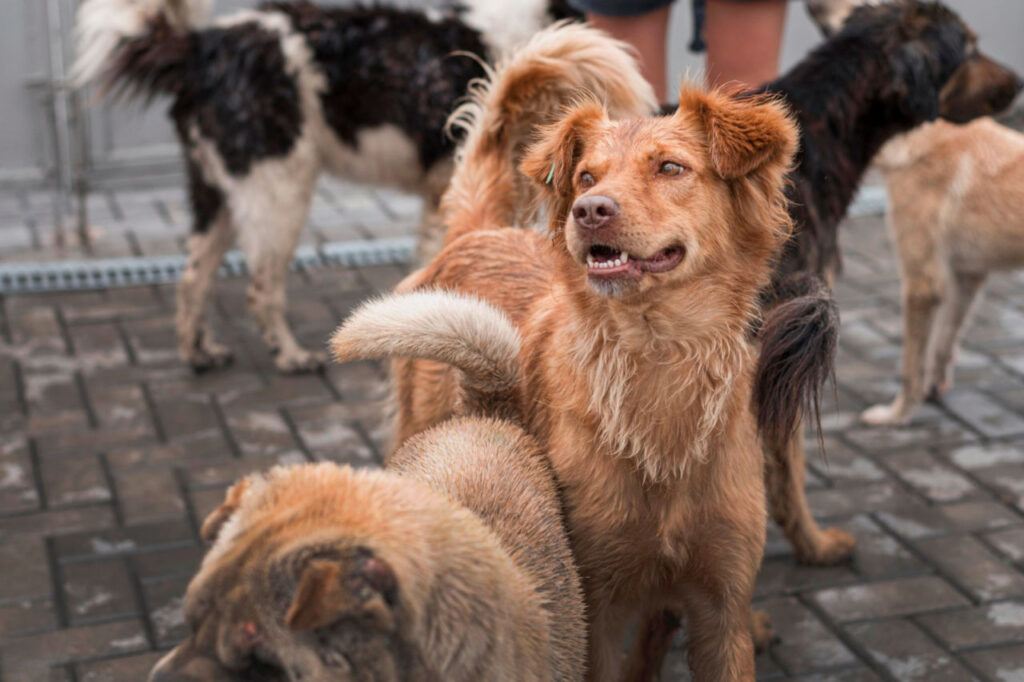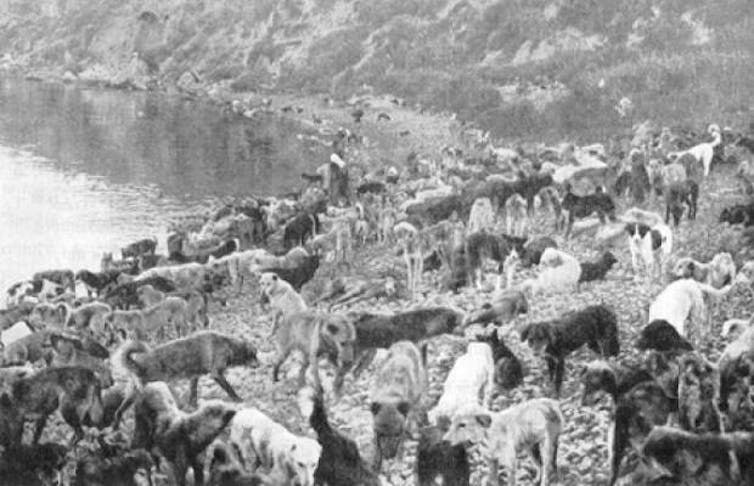"License to kill" or public safety? Controversial law on stray dogs in Turkey
In Turkey, a new law passed in the summer of 2024 could lead to mass euthanasia of stray animals, particularly street dogs. The country, which has a strong tradition of coexisting with street animals, is thus seeing the memory of the massacre on Maudite Island revived, where around 80,000 dogs were deported and left to their fate in 1910. Other options, such as sterilization and/or adoption, would be more humane.
Bernur Açıkgöz, Katip Celebi University and Marc Willinger, University of Montpellier

In Turkey, a new law passed in the summer of 2024 provides for the capture of stray animals, particularly street dogs, in order to curb their proliferation. The law provides for their placement in shelters and the systematic euthanasia of animals deemed dangerous, including sick animals or those exhibiting behavior classified as "negative."
This law raises major concerns in terms of animal welfare and public safety: it risks leading to the mass slaughter of animals, even though more humane solutions exist, such as sterilization and adoption campaigns. When compared to European Union animal welfare standards, it is clear that Turkey should consider a more inclusive reform.
However, Turkey has a long-standing tradition of coexisting with street animals. Since Ottoman times, stray animals have been an integral part of Turkey's social and cultural fabric: people feed them, build shelters for them, and share urban spaces with them. This peaceful tradition continues today in many towns and villages, contributing to the well-being of these animals.
The fate of stray animals is a sensitive issue there: in 1910, under the Ottoman Empire, the island of Sivriada (also known as the Cursed Island) was used to exile stray dogs from Istanbul. During this event, more than 80,000 dogs were rounded up and then abandoned on this deserted island.

The death of the dogs from hunger and thirst sparked widespread public outrage, and the event is remembered as both a moral and practical failure, leaving a deep scar on people's consciences. The public also associated certain subsequent disasters, such as earthquakes and wars, with the "curse of the dogs."
A memory that has been revived by new legislation on stray dogs in Turkey, against a backdrop of humanitarian and ethical debate.
The new law, a short-term "solution"
One of the main reasons behind the adoption of this new law in Turkey is the increase in the number of stray dogs and the rise in fear of dogs among part of the population. Stray dogs cause traffic accidents and can be carriers of dangerous diseases, such as rabies.
The previous law, Section 6 of Law No. 5199 on the protection of animals, required municipalities to sterilize, vaccinate, treat, and release stray animals in their place of origin. However, municipalities did not fulfill this mission, and due to insufficient sterilization, dog populations continued to grow. The new law, which allows for the capture and euthanasia of unadopted dogs, aims to remedy this situation.
Although this law appears to respond to an urgent public safety need, it is unlikely to be a humane long-term solution. Indeed, no municipality in Turkey currently has the infrastructure to house these animals. According to Turkish media, some municipalities have begun poisoning dogs due to a lack of space in shelters. In rural areas and some urban areas, this law has already led to animal massacres.

To stay up to date with environmental issues, check out our weekly newsletter "Ici la Terre" every Thursday. Subscribe today.
Thus, the new law requires municipalities to capture and confine animals, but without providing them with adequate infrastructure. This law therefore offers only a short-term solution, while neglecting any consideration of long-term animal welfare.
Sterilization, adoption... more sustainable solutions
If this law remains in force, there is a risk that animal slaughter will increase, placing responsibility on municipalities and the central government. To reconcile animal welfare and public safety, the government should reassess the consequences of this law and consider alternatives.
To address the issue of stray animals in Turkey, policy adjustments could have been considered even before implementing such a law. These would have made it possible to preserve the customs of coexisting with street animals, while striking a better balance between public safety and respect for animal rights.
- Firstly, there is the issue of shelters to house stray animals that have been captured: at the very least, safe areas should have been designated where the animals could have stayed while waiting for the appropriate infrastructure to be built.
- Although the sale of animals in pet stores has been banned, breeding and sales on unregulated farms continue, contributing to the increase in the number of stray animals.
- In addition, pets can still be imported by international travelers.
- Certain existing laws, such as those prohibiting the keeping of animals in condominiums, could have been reevaluated to encourage dog adoption in Turkey.
- Sterilization campaigns could reduce the number of dogs, while adoption campaigns would encourage the public to take responsibility for these animals and raise awareness of animal rights.
- Even in the absence of mass adoptions, municipalities could invest in sterilization centers to allow animals, once vaccinated and sterilized, to return to their areas of origin after treatment.
Drawing inspiration from the European Union
Within the European Union, as in Sweden and Germany, political measures have significantly reduced the number of stray animals.
In France, the law on animal protection and welfare includes serious measures to protect stray animals and prohibits their abandonment. Violations of animal welfare are severely punished, and shelters and adoption programs to rehabilitate stray animals are in place.
Directive 98/58/EC of the European Parliament prohibits unnecessary euthanasia and requires member states to adopt animal protection policies. Article 13 of the Treaty of Lisbon recognizes dogs as "sentient beings" and emphasizes the need to protect their rights.
By implementing similar programs, Turkey could control stray animal populations. It would be helpful if the campaign against the new law were to spread internationally, particularly in Europe: organizations such as Eurogroup for Animals could offer financial and technical support for sterilization and adoption projects in Turkey.
Ultimately, although this new law aims to strengthen public safety in the short term, it seriously jeopardizes animal welfare and social harmony in the long term in terms of peaceful coexistence with these animals. It would be desirable to repeal this law and replace it with more inclusive and humane legislation, drawing inspiration from the animal welfare standards in force in the European Union.
In 1789, the English philosopher Jeremy Bentham himself wrote:

"What [...] criterion should mark the insurmountable line? Is it the ability to reason, or perhaps the ability to speak? But an adult horse or dog is an incomparably more rational animal, and also more talkative, than a child of one day, or one week, or even one month. But even if they weren't, what difference would it make?
The question is not: can they reason? nor: can they speak? but: can they suffer?
Bernur Açıkgöz, Professor of Economics, Katip Celebi University and Marc Willinger, Professor of Economics, Behavioral and Experimental Economics, University of Montpellier
This article is republished from The Conversation under a Creative Commons license. Readthe original article.